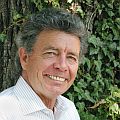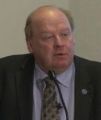A STREAM IS A LAND USE: “This is a novel yet intuitively obvious way of characterizing a stream and its riparian corridor because streams in settled areas meet this litmus test for a ‘land use’, and that is: they have a defined area in legislation,” wrote Tim Pringle, EAP Chair, in the report on the application of the Ecological Accounting Process to Shelly Creek on the east coast of Vancouver Island (February 2020)

“The starting point for application of EAP, the Ecological Accounting Process, is recognition that local governments have existing tools in the form of policies and legislation for ‘maintenance and management’ (M&M) of ecological assets within riparian corridors. Until now, what local governments have lacked are a pragmatic methodology for financial valuation, and meaningful metrics that go to the heart of sustainable service delivery. EAP provides metrics that enable communities to appreciate the worth of ecological assets,” stated Tim Pringle.










